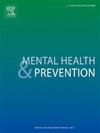来自加沙的声音:加沙地带战争期间的应对策略-一项定性研究
IF 2.4
Q2 Medicine
引用次数: 0
摘要
加沙地带正面临前所未有的破坏,在持续不断的战争和种族灭绝中,基础设施遭到广泛破坏,大规模流离失所,基本服务崩溃。在这种深刻创伤和人道主义危机的背景下。这项研究的目的是提高在当前种族灭绝下生活在加沙地带的无辜巴勒斯坦人的声音,并强调他们制定的应对战略和机制。方法本定性研究利用2023年10月至2025年4月期间与加沙流离失所的平民、家庭成员、卫生保健工作者和朋友进行的日常个人通信。证词是通过手机和社交媒体平台收集的。结果研究结果揭示了一系列应对策略,包括社区团结、宗教和精神复原力、创造性表达、儿童非正式心理社会护理以及卫生保健工作者之间的同伴支持。被调查者认为,照顾和基于信仰的实践既是情感生存的形式,也是政治抵抗的形式。保健工作者尽管个人损失惨重,但仍继续提供关键的医疗和情感支持,体现了巴勒斯坦人坚定不移的精神。教育、讲故事、面向未来的对话和国际团结也成为维持情感耐力的关键资源。该研究强调了加沙的应对策略是如何深深植根于文化价值观、集体认同和道德抵抗的。复原力不仅表现在个人适应上,也表现在面对非人化时维护尊严、人性和希望的行为上。这些调查结果强调,需要进行创伤研究和人道主义应对,这些研究和应对应考虑到具体情况,融入文化,并与种族灭绝下平民的生活经历相适应。本文章由计算机程序翻译,如有差异,请以英文原文为准。
Voices from Gaza: Coping strategies during the war on the Gaza Strip- A qualitative study
Introduction
The Gaza Strip is facing unprecedented devastation, with widespread destruction of infrastructure, mass displacement, and a collapse of essential services amid ongoing war and genocide. In this context of profound trauma and humanitarian crisis. This study aims to raise the voice of innocent Palestinians living in the Gaza Strip under the current genocide and underline the coping strategies and mechanisms they have developed.
Methods
This qualitative study draws on daily personal communications conducted between October 2023 and April 2025 with displaced civilians, family members, healthcare workers, and friends in Gaza. Testimonies were gathered via mobile and social media platforms.
Results
Findings reveal a range of coping strategies, including community solidarity, religious and spiritual resilience, creative expression, informal psychosocial care for children, and peer support among healthcare workers. Caregiving and faith-based practices were framed by informants as forms of both emotional survival and political resistance. Healthcare workers, despite profound personal losses, continued to deliver critical medical and emotional support, embodying the Palestinian ethos of sumud (steadfastness). Education, storytelling, future-oriented conversations, and international solidarity also emerged as key resources sustaining emotional endurance.
Discussion
The study highlights how coping strategies in Gaza are deeply rooted in cultural values, collective identity, and moral resistance. Resilience is expressed not only through personal adaptation but through acts that assert dignity, humanity, and hope in the face of dehumanization. These findings underscore the need for trauma research and humanitarian responses that are context-sensitive, culturally embedded, and attuned to the lived experiences of civilians under genocide.
求助全文
通过发布文献求助,成功后即可免费获取论文全文。
去求助
来源期刊

Mental Health and Prevention
Medicine-Psychiatry and Mental Health
CiteScore
2.10
自引率
0.00%
发文量
22
审稿时长
24 days
 求助内容:
求助内容: 应助结果提醒方式:
应助结果提醒方式:


